Religion: Religious Leaders Post-1900
Franz von Papen (1879-1969)
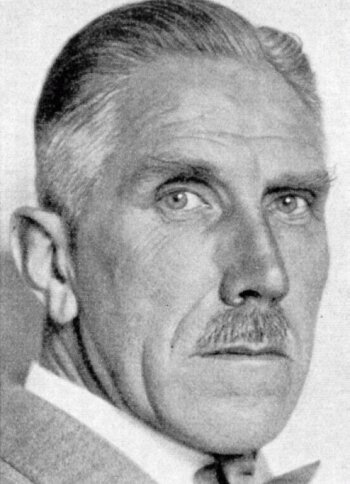
Religion and Branch: Christianity (Catholicism)
Title: Politician, Diplomat
Franz von Papen was a German nobleman, military officer, and politician who played a significant role in the early years of the Nazi regime, though he himself was not a member of the Nazi Party. His influence in regard to religion in Germany primarily stems from his involvement in the negotiation of the Reichskonkordat between the Holy See (Vatican) and German Reich. Coming from a devout Catholic background, von Papen was closely aligned with the Catholic Centre Party (Zentrum) in Germany, which aimed to represent Catholic interests in the predominantly Protestant nation.
In a controversial decision, von Papen and other conservative elites believed they could control Adolf Hitler by making him Chancellor and surrounding him with conservative ministers. This miscalculation led to Hitler's appointment as Chancellor in 1933, with von Papen serving as vice-chancellor. In this role, von Papen played a pivotal part in negotiating the Reichskonkordat, a treaty between the Vatican and German Reich. This agreement guaranteed the rights of the Catholic Church in Germany in exchange for the church's non-interference in political matters. While the treaty was intended to protect the church from Nazi encroachment, it has been criticized for giving Hitler's regime an early appearance of international legitimacy.
By the mid-1930s, von Papen's influence waned, and he became increasingly marginalized within the Nazi regime. He was involved in conservative opposition circles and was arrested after the failed 1944 plot to assassinate Hitler. After World War II, he was acquitted at the Nuremberg Trials but was classified as a "fellow traveler" of the Nazis in subsequent denazification proceedings.
Augustin Bea (1881-1968)
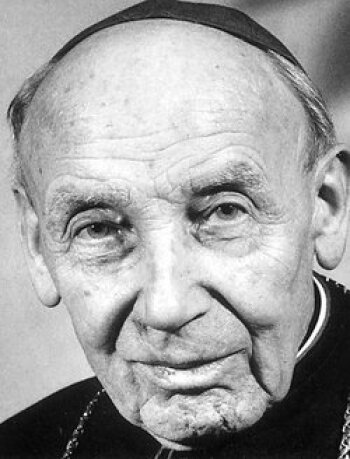
Religion and Branch: Christianity (Catholicism)
Title: Cardinal, Scholar
Augustin Cardinal Bea was a German Roman Catholic priest and Jesuit who served as an important leader in the Catholic Church during the mid-20th century. He was appointed as the first president of the newly established Secretariat for Promoting Christian Unity in 1960, a position he held until his death in 1968.
Cardinal Bea played a key role in the Second Vatican Council, working to promote dialogue and understanding between the Catholic Church and other Christian denominations. He was also an advocate for improved relations between the Catholic Church and the Jewish community, helping to draft the landmark Nostra Aetate declaration in 1965.
Friedrich Heiler (1892-1967)
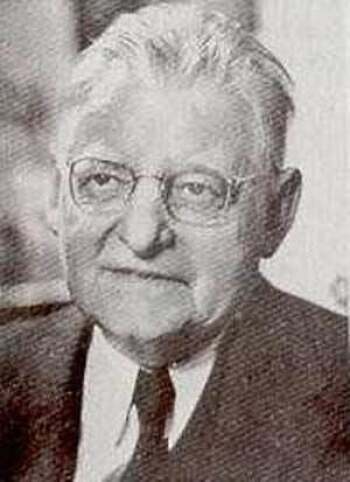
Religion and Branch: Protestant Christianity (Lutheran)
Title: Scholar, Theologian
Friedrich Heiler was a renowned German religious scholar and theologian. His work primarily focused on the comparative study of religions, and he is best known for his writings on prayer and mysticism.
Heiler had a strong interest in the ecumenical movement, which seeks to promote cooperation and unity among Christian denominations. One of his most significant works is Prayer, published in 1918, where he provides a comparative study of prayer across different religions. He considered prayer to be a universal religious phenomenon. Heiler had a particular interest in mysticism and wrote extensively on Christian mystics as well as mysticism in other religious traditions. He held academic positions in several German universities, and his teachings and writings significantly influenced the field of comparative religion in Germany and beyond.
Originally a Roman Catholic, Heiler later joined the Evangelical Lutheran Church. His move from Catholicism to Lutheranism was significant given his scholarly pursuits, particularly in ecumenical dialogues and the study of prayer. This background added to the depth of his perspective in comparative religious studies, emphasizing the unity of religious experiences across denominations and religions.
Beyond Christianity, Heiler was known for promoting dialogue between different faith traditions, especially between Christianity and Hinduism. Through his work, Heiler emphasized the shared spiritual practices and experiences across religious boundaries, helping to build bridges of understanding among different faiths.
Martin Niemöller (1892-1984)
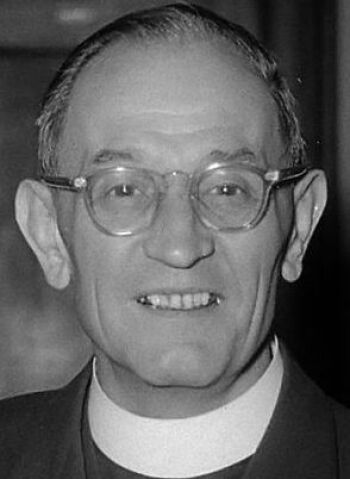
Religion and Branch: Protestant Christianity (Lutheran)
Title: Pastor, Theologian, Activist
Martin Niemöller (1892-1984) is best remembered for his role as a prominent Protestant pastor who openly opposed Adolf Hitler and the Nazi regime. He initially served as a German naval officer during World War I. Following the war, he studied theology and was ordained as a Lutheran pastor in 1924.
In the early 1930s, like some other Germans, Niemöller initially expressed support for Hitler, believing that he could revitalize the nation after its post-World War I difficulties. Niemöller soon grew disillusioned with the Nazi regime, especially as it sought to assert control over the Protestant churches in Germany. He became one of the leading figures of the Confessing Church, a movement within German Protestantism that resisted the Nazi state's attempts to co-opt and control Christian teachings and institutions.
Because of his outspoken opposition, Niemöller was arrested in 1937 and eventually sent to concentration camps, including Dachau. He spent nearly eight years in detention before being liberated by Allied forces in 1945. After World War II, Niemöller became a pacifist and an advocate for German denazification and reconciliation. He also expressed regret for not having done more to help and stand up for the persecuted, particularly the Jews, under the Nazi regime.
Niemöller is often associated with a quotation that emphasizes the consequences of staying silent in the face of tyranny. The exact wording varies, but a common version is: "First they came for the socialists, and I did not speak out—because I was not a socialist. Then they came for the trade unionists, and I did not speak out— because I was not a trade unionist. Then they came for the Jews, and I did not speak out—because I was not a Jew. Then they came for me—and there was no one left to speak for me."
Niemöller's legacy in Germany is that of a church leader who recognized the evils of the Nazi regime and took a stand against them, albeit with complexities and contradictions in his early stance. His experiences and post-war messages serve as powerful reminders of the moral obligations to defend the rights and dignity of all people.
Muhammad Asad (1900-1992)
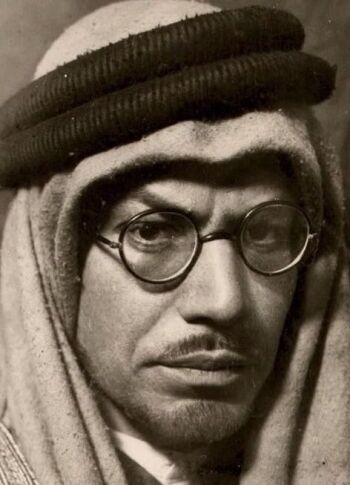
Religion and Branch: Islam (Sunni)
Title: Islamic Scholar, Journalist, Diplomat
Born as Leopold Weiss in Lviv (then part of the Austro-Hungarian Empire, now in Ukraine), Muhammad Asad was a prominent journalist, traveler, writer, translator, diplomat, and Islamic scholar. He grew up in a German-speaking Jewish family. His early life was shaped by the diverse cultures of Central Europe, and he was well-acquainted with the European intellectual milieu of his time.
During his travels in the Middle East in the 1920s as a journalist, Weiss became increasingly interested in the Arab and Islamic worlds. He converted to Islam in 1926 in Berlin and took the name Muhammad Asad. Even after his conversion and relocation to the Middle East, Asad maintained connections with Germany. However, his relationship was complicated due to the rise of Nazism. Though he was critical of Zionism, he equally criticized Nazi policies, particularly their treatment of Jews.
Asad's most well-known work is The Road to Mecca, an autobiographical account of his journey from Europe to the Arabian heartland, his conversion, and his reflections on the Islamic world of the 20th century. Additionally, he is acclaimed for his English translation of the Qur'an, "The Message of the Qur'an," which offers a thorough commentary rooted in his unique perspective as someone deeply familiar with both European intellectualism and Islamic tradition.
Asad is a crucial figure for interfaith dialogue and understanding, representing a bridge between Western and Islamic intellectual traditions. In Germany, he serves as an example of the rich tapestry of religious and cultural interchange.
Dietrich Bonhoeffer (1906-1945)
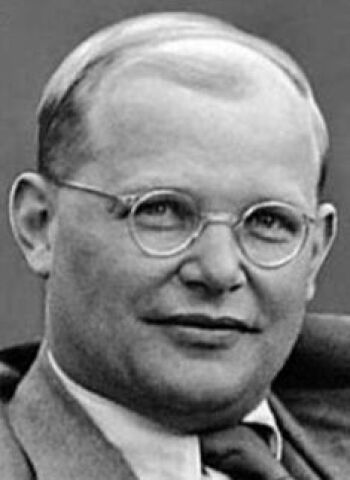
Religion and Branch: Protestant Christianity (Lutheran)
Title: Theologian, Pastor, Resistance Leader
Dietrich Bonhoeffer was a German Lutheran pastor, theologian, anti-Nazi dissident, and key founding member of the Confessing Church. His deep theological writings, moral fortitude, and opposition to Adolf Hitler's regime, especially its persecution of the Jews, have made him a significant figure in modern Christian theology and history.
Bonhoeffer's works, including The Cost of Discipleship and Life Together, are considered classics. His theology emphasizes the importance of Christian community, ethical action, and the need for believers to confront evil in the world.
With the rise of National Socialism, the German Protestant Church faced internal divisions, with many leaders supporting the Nazi agenda. Bonhoeffer was a prominent figure in the Confessing Church, a movement within German Protestantism that opposed Nazi attempts to conflate German national identity with Christianity. Bonhoeffer was deeply opposed to the Nazis, particularly due to their Aryan Paragraph, which discriminated against Christians of Jewish descent. He also condemned the church's complacency with the Nazis.
During World War II, Bonhoeffer was involved in underground operations, working as a double agent. He was part of the German military intelligence (Abwehr) and used his position to assist Jews in escaping to Switzerland. Moreover, he became linked with the conspiracy to assassinate Hitler. In April 1943, Bonhoeffer was arrested, and during his imprisonment, he wrote letters and notes which were later published as Letters and Papers from Prison. In April 1945, just a few days before the liberation of the camp, Bonhoeffer was executed on Hitler's direct orders.
Bonhoeffer is celebrated for his courageous stand against tyranny and his profound theological insights. His commitment to social justice, his understanding of Christian discipleship, and his resistance to oppressive power structures have continued to inspire activists, theologians, and Christians around the world.
Pope Benedict XVI (1927-2022)
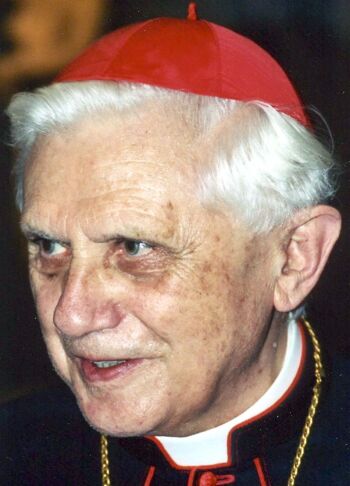
Religion and Branch: Christianity (Catholicism)
Title: Bishop
Born Joseph Aloisius Ratzinger, Pope Benedict XVI was ordained as a priest in 1951 and served as the head of the Roman Catholic Church from 2005 until his resignation in 2013.
During the Second Vatican Council (1962-1965), Ratzinger served as a theological consultant. Initially seen as a progressive, he later became more conservative, especially post-council, when he felt that some interpretations of the Council went too far. In 1977, Pope Paul VI appointed Ratzinger as the Archbishop of Munich and Freising. He was the first diocesan priest in 80 years to take on the role. Shortly after, he was made a Cardinal.
In 1981, Pope John Paul II called Ratzinger to Rome to lead the Congregation for the Doctrine of the Faith (formerly the Holy Office or Inquisition). In this role, which he held for over two decades, Ratzinger was responsible for safeguarding the doctrine of the church. He gained a reputation for theological conservatism, emphasizing traditional Catholic teachings and practices.
In 2005, following the death of Pope John Paul II, Ratzinger was elected Pope, taking the name Benedict XVI. His papacy was marked by a focus on traditional teachings, inter-religious dialogue, and efforts to address the clerical sex abuse crisis. He also sought to re-evangelize Europe, given its declining religiosity. In a move that surprised the world, Pope Benedict XVI resigned in 2013, becoming the first pope to do so in nearly 600 years. He cited his declining health as the reason.
Pope Benedict's German roots influenced his theological perspective and his views on the role of Europe in the Catholic Church. While he was a polarizing figure in some quarters due to his conservative stances, he was also respected for his deep intellect and commitment to the church's teachings. His writings and teachings continue to be influential in German theological circles and among the Catholic faithful.
Margot Käßmann (1958 to Present)
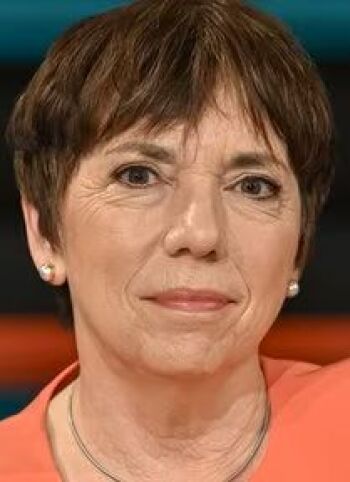
Religion and Branch: Protestant Christianity (Lutheran)
Title: Theologian, Pastor
Margot Käßmann is a prominent German Lutheran theologian and pastor. She has played significant roles in the Protestant Church in Germany (Evangelische Kirche in Deutschland, or EKD) and has been an influential voice on various societal and theological issues.
Käßmann was elected as the bishop of the Evangelical-Lutheran Church of Hanover in 1999, becoming one of the few women to achieve such a position in the major Protestant churches of Germany. In 2009, she was elected as the chairperson of the council of the EKD, making her the highest-ranking representative of the Protestant Church in Germany. She was the first woman to hold this position. Käßmann resigned from both her roles as EKD council chairperson and bishop of Hanover in 2010 following a widely publicized incident in which she was stopped for driving under the influence of alcohol. Her decision to step down was based on her belief that she could no longer serve as a moral authority given the circumstances.
Käßmann has been known for her progressive views on various issues, including advocating for peace, refugee rights, and gender equality within the church. She has also been vocal about the importance of interfaith dialogue and has engaged in discussions with representatives of other religions. Apart from her church roles, Käßmann is a prolific author and has written on various theological topics. She has also held academic and lecturing roles and has been involved in international church and ecumenical movements.
Despite the controversy that led to her resignation, Käßmann remains a significant and respected figure in German religious circles. Her contributions to discussions on ethics, social justice, and the role of the church in modern society have made her one of the most influential religious voices in Germany.
Copyright © 1993—2025 World Trade Press. All rights reserved.

 Germany
Germany